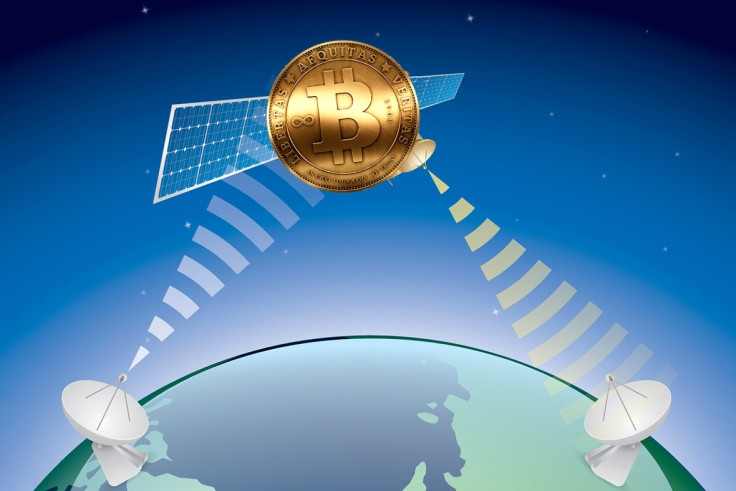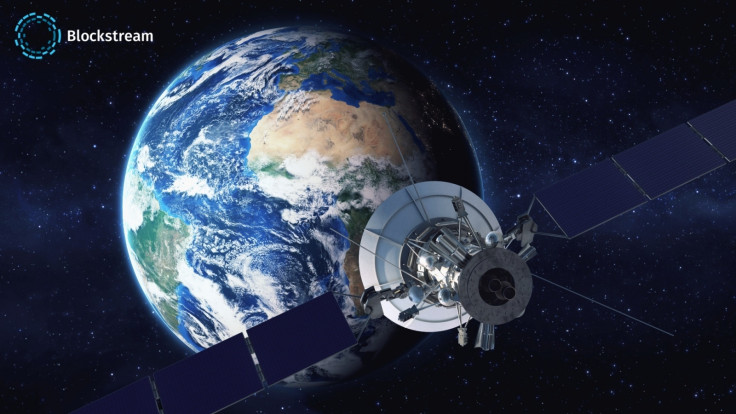'Hello World': Blockstream Satellite to broadcast Bitcoin to the entire planet
Blockstream Satellite offers a low-cost way for anyone, anywhere to operate and maintain Bitcoin nodes.

Blockchain technology company Blockstream has unveiled a satellite system that will bring Bitcoin connectivity to almost everyone on the planet.
Billions of people all over the world struggle to connect to the internet; in many cases the cost of bandwidth relative to their income makes it prohibitive to do so. In addition to poor infrastructure and poverty, there are also places with lots of political instability, censorship and state control.
Blockstream CEO Dr Adam Back said: "There are lots of places with internet problems, and sometimes whole countries get cut off due to wars or political instability and at those times the only kinds of connectivity that leak out of these countries are satellite communications and sat-phone and things like that.
"And there is also an interesting coincidence between countries with infrastructure challenges and unstable currencies - so there is also a demand for access to global internet money."
Blockstream Satellite allows anyone to operate and maintain Bitcoin nodes across two thirds of the Earth's landmass, with additional coverage areas soon to come online to reach almost every person on the planet by the end of the year.
Adam Back said: "A high level way to look at it is, you've got the global GPS system for navigation; this is a global Bitcoin system so people can use Bitcoin everywhere."
The Blockstream Satellite network currently consists of three geosynchronous satellites that cover four continents - Africa, Europe, South America, and North America. Ground stations called teleports uplink the public Bitcoin blockchain data to the satellites in the network, which then broadcast the data across the globe.

Setup costs are low, less than $100, which can be reduced further by using a recycled satellite dish - a regular TV satellite dish will do. There is no ongoing bandwidth cost once you've got it up and running. Blockstream Satellite brings the costs down by using GNU Radio, an open source software development toolkit which eliminates the need for specialised hardware. Performance is enhanced with Fast Internet Bitcoin Relay Engine (FIBRE).
Chris Cook, head of satellite at Blockstream explained that rather than launching new satellites which is expensive and time consuming, the company is leasing time on existing commercial satellites.
Cook said: "We had a look at the feasibility of launching satellites but were thinking, why launch our own satellite when there are plenty of interesting communication satellites up there that have capacity."
He pointed out that typically satellite equipment costs many thousands of dollars, but that using GNU Radio is major cost saving innovation. This involves a USB connection to the computer, and then it's a programmable radio, like analogue to digital radio processing equipment, which can be used to process all kinds of different signals.
He added: "One of the other cost-saving advantages is that existing TV dishes can be re-used and the system of designs use very small dishes, particularly the ones that are 46 cm or 18 inches in diameter - so they are very common and very unobtrusive."
Dr Back added: "A user or a local business can run a full node, receive all the data and then when they go to send a transaction, they can pay the bandwidth cost for that. A Bitcoin transaction is pretty small, like 250 bytes."
He said bidirectional satellite equipment which can be purchased quite cheaply on eBay could be added. Other communication channels people could use include local Wi-Fi, mesh networks, SMS gateways, dial up, or other kinds of low bandwidth, high distance radio equipment.
For example, a small business on the side of the road with a little petrol generator and a satellite dish on the roof, using a Rasberry Pi to receive the blockchain data and with a Wi-Fi hotspot, can manage to transact globally on the Bitcoin network.
As well as bringing more nodes and more decentralisation to the global Bitcoin network, Blockstream Satellite provides extra redundancy and an additional layer of reliability for blockchain data in the event of a network partition.
Back said from the perspective of miners and Bitcoin businesses generally, "if you're doing high value Bitcoin things or doing mining, you really want to make sure that you're on the Bitcoin network proper. Occasionally there will be internet disruptions where a transatlantic cable is cut or something like that and for a period of even hours you can have network splits. The satellite is a truly redundant link that protects against those kinds of issues for users and businesses."
Using a sail-over connection is also interesting in regard to places where Bitcoin's legal status is unclear, or a government wants to impose capital controls, filter the internet and so on. Back pointed out that the system leaves practically no footprint.
"If a government were looking at the internet connection or if it were going through a government-operated firewall or something, there would be no evidence of participating Bitcoin just coming down from the satellite. And the actual transactions will be very small so they leave a much smaller footprint and be much easier to lose in noise. So it's certainly much more possible to use Bitcoin privately, anonymously, and robustly."
The business of downloading full Bitcoin node software has also been made less onerous in recent times. One of the recent releases introduced pruned modes and there's a no-relay option as well. "If you turn on all the bandwidth saving options and the disk storage options, your footprint is much smaller because it doesn't have to store the historic data, only the current data which will fit in a gigabyte of local storage. So you basically need something like an SD card or something like that, even on a Rasberry Pi," said Back.
Looking ahead, Blockstream intends to add more features and programmability, so that smart phone wallet authors and Bitcoin application developers can also broadcast data by the satellite. Back added: "If it was a particular application that needs to send a message to a recipient that can be broadcast by the satellite too for a small Bitcoin fee."
© Copyright IBTimes 2024. All rights reserved.






